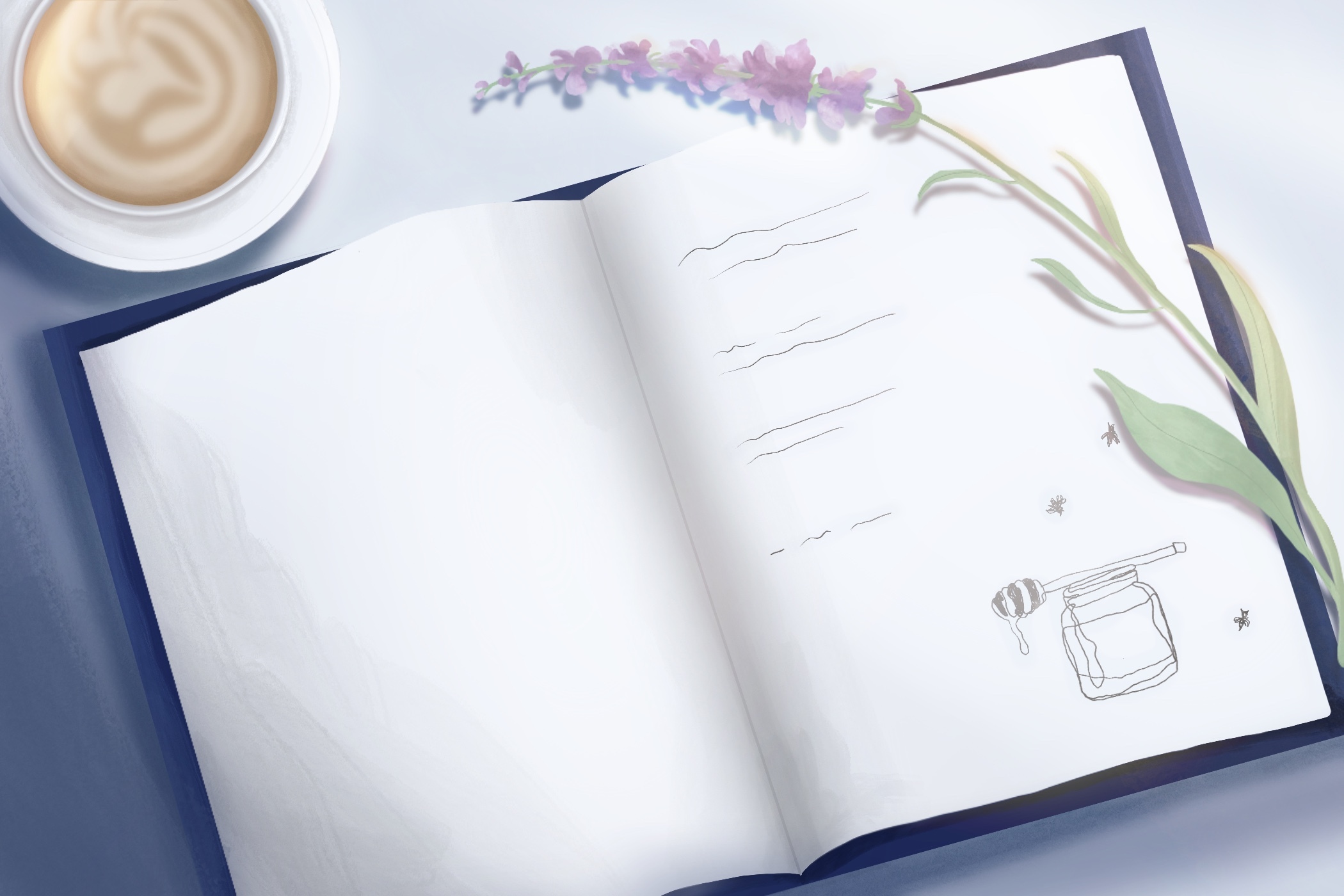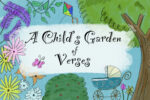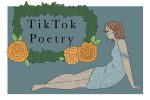In the age of Rupi Kaur, Courtney Peppernell and r.h Sin, “Instapoetry” has found its way into the Tumblr, Instagram and Pinterest posts of millions of teenage girls. Instapoetry is a distinct writing phenomenon that refers to a style of poetry that often includes free verse, seemingly arbitrary line breaks and accompanying sketched images. As its name suggests, Instapoetry mainly exists on social media platforms. However, it has seen great economic success and has been incredibly marketable in the book industry.
“Milk and Honey,” Kaur’s debut poetry book, sold 2.5 million copies and spent 77 weeks on The New York Times Trade Paperback Best-Seller List, and her succeeding poetry collection, “Sun and her Flowers,” sold 8 million copies. Peppernell’s “Pillow Thoughts” and r.h Sin’s “I hope this reaches her in time” both also performed incredibly well in the book market, with several thousands of copies continuing to be distributed in book shops across the nation.
While I rejoice in the fact that young women have begun to turn their experiences into poetry and other young women have been receptive to their expression, the culture of Instapoetry that focuses on aesthetics rather than content objectively lacks skill, structure and subtlety. Seemingly a cash grab to be sold at every local Urban Outfitters rather than a strong attempt to creatively experiment with language and challenge traditional forms of poetry, these poetry collections are often just disappointing in their shallow nature and unoriginality.
Milk and Honey
The best example of the disappointment that comes with Instapoetry can be seen in its most popular manifestation, “Milk and Honey.” While Kaur’s “Milk and Honey” explored an abundance of grave themes such as sexual assault and love and loss with a progressive South Asian lens, most of the poetry was lackluster. As poet and critic Rebecca Watts said of Instapoetry, this new fad is a “complete rejection of complexity, subtlety and eloquence.”
In an attempt to not select either the best or worst poems in her poetry collection, I plucked the first ones I saw when I typed in “Milk and Honey” into a Google search.
“stay / i whispered / as you / shut the door behind you.”
While seemingly profound and emotional, on further inspection, this first poem reads more as prose masquerading as a poem with its arbitrary line breaks, lack of proper capitalization and cliché symbolism. Rather than creatively expand on the heartbreaking idea of an unrequited longing for someone, Kaur gives the reader a cliché image of a door closing.
The accompanying image of a hand reaching out, while beautifully drawn, is also simplistic and again just overdone.
This second poem reads similarly to the first bit of prose pretending to be a poem. The idea is not profound nor is it original. The use of line breaks is lazy, and it is glaringly obvious that she simply pressed the return key whenever she felt like it rather than thoughtfully choosing when it would be the most impactful to do so. The accompanying image has nothing to do with the poem and seems to be just an aesthetic choice — which would normally be fine if the poem was not so superficial.
“he isn’t coming back / whispered my head / he has to / sobbed my heart.”
I hate to repeat myself, but Kaur’s poetry is just repetitively boring. The trope of the heart not listening to the head in times of great sadness is cliché and too shallow for me to feel any real emotional connection with. The image of the wilted flower does nothing to try to foster some depth to the poem.
All of these line breaks and lack of proper capitalization just point to the author’s longing to make their words seem as if they were profound, even when they lack proper depth. As a reader, I feel as if I am being tricked into trying to find deeper meaning where there really is none.
There is an emphasis on aesthetic rather than content, which could be interesting if the aesthetic choices were purposeful. I would rather Kaur just write an actual poem and not clumsily add arbitrary aesthetic choices to unoriginal prose.
Not only is Kaur’s poetry individually lazy, but because of her Instapoet style, people accept that her poetry collections have tons of page filler. Usually, these types of poetry collections do not contain a massive number of pages. Most of the pages in Kaur’s collections have very short lines of text, sometimes only containing just a word or image. Publishing houses can latch higher price points on to larger books and garner more profit, even while giving you a low-quality product.
Writing Bad Poetry
This article was not intended to dissuade anyone from writing poetry. If you want to write Instapoetry, and become the next Rupi Kaur, then you have my full blessing. Everyone has a right to write poetry even if it is objectively bad. Truthfully, when you begin to exercise your poetic abilities, the results will likely be awful (unless you are the next Shakespeare). There is not a known poet in the modern world that wrote amazing poetry on their first try. Writing is not an inherent talent. It’s just like any other skill: It takes years of hard work and practice to begin writing poetry that is scattered with vivid imagery, language and symbolism. Therefore, as a beginner, it is okay to just enjoy the process and write poems that you may not be proud of.
However, when you are charging people money for a poetry collection that comes dangerously close to plagiarizing Tumblr posts of random 14-year-olds on the internet, you must be open to some criticism.
I will also qualify my argument and state that I know that even Instapoetry can form a connection between the reader and the author. I recognize that Kaur’s poetry would have likely never reached the success it did if it did not connect with at least the majority of its intended audience.
This very idea is established in a 2019 VICE article.
In a rather humorous experiment to decipher whether Instapoetry is a sham, Andrew Llyod from VICE wrote objectively bad poetry, using the same style as most other Instapoets, and pretended to be a poet named Raven S. Llyod. He amassed 646 followers in only four weeks, and his poetry was even praised by another best-selling Instapoet, Atticus. The biggest finding of this experiment was the surprising response by “Raven’s” followers. There were multiple instances of people reaching out to him to express how deeply affected they were by his work.
So even when it was intended to be bad poetry, it was not perceived as such. The accessibility of his “bad poetry” made more people want to engage with it.
I will admit that this is important. I have always considered poetry to be one of the most important art forms because of its ability to intertwine the humanity of the author and reader together with language. So yes, perhaps the lack of the usual literary components made the poetry less intimidating to others.
However, this just seems like the easy way out to me. If you want your poems to be well-written and accessible, you should make it so through practice and hard work. Don’t simply choose accessibility and disregard the traditional components of what makes poetry special.
I sincerely hope that Kaur and other Instapoets sharpen their skills as they work on writing their next collections, and are able to bring good poetry to social media platforms — and their audience.


















Amen. I have an MFA in Creative Writing and continue to work with serious, adult, authentic, skilled poets. This instapoetry must take all of an instant to create. Horrible. I teach creative writing, and when my students want to “study” a poet, I say NO to this emo dribble.